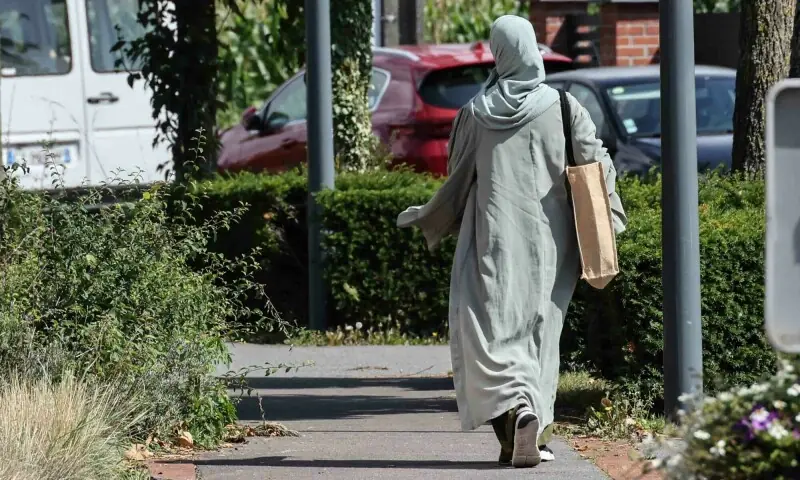

ISLAMABAD: A parliamentary committee and the government agreed on Wednesday to ask the State Bank of Pakistan to persuade commercial banks to stop mandating that their female employees wear abayas, arguing women should not be compelled to adopt a specific religious look.
The pledge came during a meeting of the Senate Standing Committee on Finance where lawmakers also learnt of a plan by tax authorities to install artificial intelligence-based cameras across 17 major industrial sectors to combat widespread tax evasion.
The discussion on dress codes was initiated by Senator Zarqa Suharwardy, who informed the committee that some Islamic banks were forcing female staff to wear abayas.
“Pakistani women already use decent clothing and should not be forced to wear abayas at Islamic bank counters to give a religious look,” she said.
The committee, presided over by Senator Saleem Mandviwala, concluded that the State Bank of Pakistan (SBP) should intervene. A representative of the SBP present at the meeting clarified that official dress code policies currently varied from bank to bank.
Other committee members voiced strong opinions on the matter. Mr Mandviwalla noted that Islamic banks often charge higher interest rates than conventional banks under the guise of Islamic financing. Senator Farooq Naik called the reported mandate a violation of personal freedom.
Compelling a female banker to wear an abaya, Mr Naik said, was like “forcing somebody to grow beard against his will”, but he questioned how the central bank could effectively police such internal bank policies.
Minister of State for Finance Bilal Azhar Kiyani, stating he was unaware of “such an odd compulsion”, assured the committee he would raise the matter directly with the SBP governor.
The committee members recommended the SBP issue a regulatory notification requiring banks to enforce a “modest, professional dress” code rather than a specific religious garment.
In a separate matter, the committee was briefed on a major anti-tax evasion initiative. Chairman Federal Board of Revenue (FBR) Rashid Langrial announced the agency would install AI-based video analytical cameras at production facilities in 17 major sectors after uncovering a significant tax theft.
Mr Langrial told the committee the move was prompted by the discovery of an annual tax theft worth over Rs 30 billion in the tiles and ceramics sector alone. “AI based video analytical cameras were being installed at production units of 17 major sectors to control tax evasion,” he said.
The chairman recounted facing opposition from a private Chinese firm that offered to increase its tax payments if it could be exempt from the camera vigilance, citing concerns over trade secrets.
Mr Langrial said he rejected the offer, telling the committee that such a suggestion was a “breach of the parliamentary panel’s privilege”.
He said the AI-based cameras would be deployed across all targeted sectors, including cement, sugar, tobacco and tiles.
He reported the initiative was already showing success, with the sugar and cement sectors expected to contribute an additional Rs76 billion and Rs102bn in revenue this year, respectively.
The committee also addressed a staggering Rs 375 trillion figure for financial irregularities reported by the Auditor General of Pakistan (AGP).
AGP representative Tafakhir Ali explained the sum was a “typographical error” in an executive summary and had been corrected to Rs9tr. He said a fact-finding inquiry into the error was underway.
Published in Dawn, November 20th, 2025










